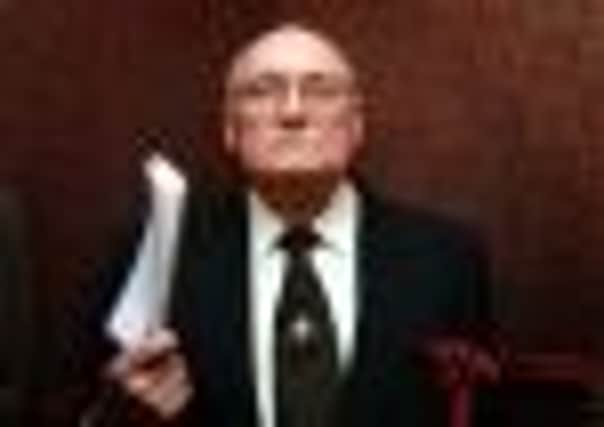Obituary: Gusty Spence, Former leader of the Ulster Volunteer Force who later renounced violence


Former Ulster Volunteer Force (UVF) leader Gusty Spence has died aged 78. He was a feared killer in the 1960s but later renounced violence and announced the 1994 Combined Loyalist Military Command ceasefire.
He was a paramilitary godfather in Northern Ireland and one of the founding figures of the UVF, but was also among the first to recognise the need for peace between Northern Ireland’s bloodied and divided communities.
Advertisement
Hide AdAdvertisement
Hide AdHe was a former military policeman from the Shankill Road in Belfast whose father was a member of the original Ulster Volunteer Force, originally formed to defend Ulster against the danger of Home Rule, but which then lost thousands of men on the battlefield of the Somme.
The UVF was stood down at the end of the First World War, but Spence helped re-invent it in 1966 when the UVF declared war on the IRA.
It was ordinary Catholics who were soon being targeted.
On 11 June, 1966, John Scullion, a Catholic aged 28, became the first victim of the Troubles when he was shot by the UVF in the Catholic Falls Road area, and died two weeks later.
Spence was one of three men charged with the murder but the charges were dropped.
Later that month, Spence and a number of other UVF members were in the Malvern Arms pub in the Shankill Road area when four Catholic barmen arrived for a post-work drink.
Spence overheard their conversation and identified them as Catholics and they were ambushed as they left. Peter Ward, 18, was shot dead.
Spence was found guilty of the murder and sentenced to life in prison but escaped in July 1972 after being given six hours parole to attend his daughter’s wedding.
Days later he gave a television interview as the organisation’s commanding officer.
Advertisement
Hide AdAdvertisement
Hide AdHe was on the run for four months, during which time he re-organised the UVF, before he was arrested and sent back to prison, where he remained until December 1984.
It was during his time in the UVF compounds in the high-security Maze prison that Spence began to seriously consider politics and he urged several figures who were to become integral to the UVF’s peace strategy to do the same.
The late David Ervine, who played a central role in persuading the UVF to declare its ceasefire in October 1994 and became the public voice of the armed group as leader of the Progressive Unionist Party, was one of those swayed by prison politics. He was to become a passionate supporter of the peace process.
Another was Billy Hutchinson, who served 15 years of a life sentence for murdering two Catholics, Edward Morgan and Michael Loughran, on the Falls Road in 1974.
A decade later, while serving his sentence, he helped establish secret contacts between the UVF and republicans inside and outside the jail. Hutchinson later joined Ervine in the PUP.
After his release from prison in December 1984 because of poor health, Spence was a key figure in developing political thinking within the UVF.
In October 1994 he announced that the main loyalist paramilitary groups, the UVF and the Ulster Defence Association, were declaring ceasefires.
Spence offered his “abject and true remorse” to the loved ones of all the innocent victims of the Troubles.
Advertisement
Hide AdAdvertisement
Hide AdHe kept a low profile and been ill in recent years, but made the UVF statement in 2007 that weapons had been put beyond use.
His appearance at every crucial juncture in the UVF story – and the progression from sectarian killer to peacemaker – will be much debated as Northern Ireland considers how to deal with its troubled past.
In 1953 Gusty Spence married Louie Donaldson, who died in 2003. He is survived by three daughters, Elizabeth, Sandra and Catherine.